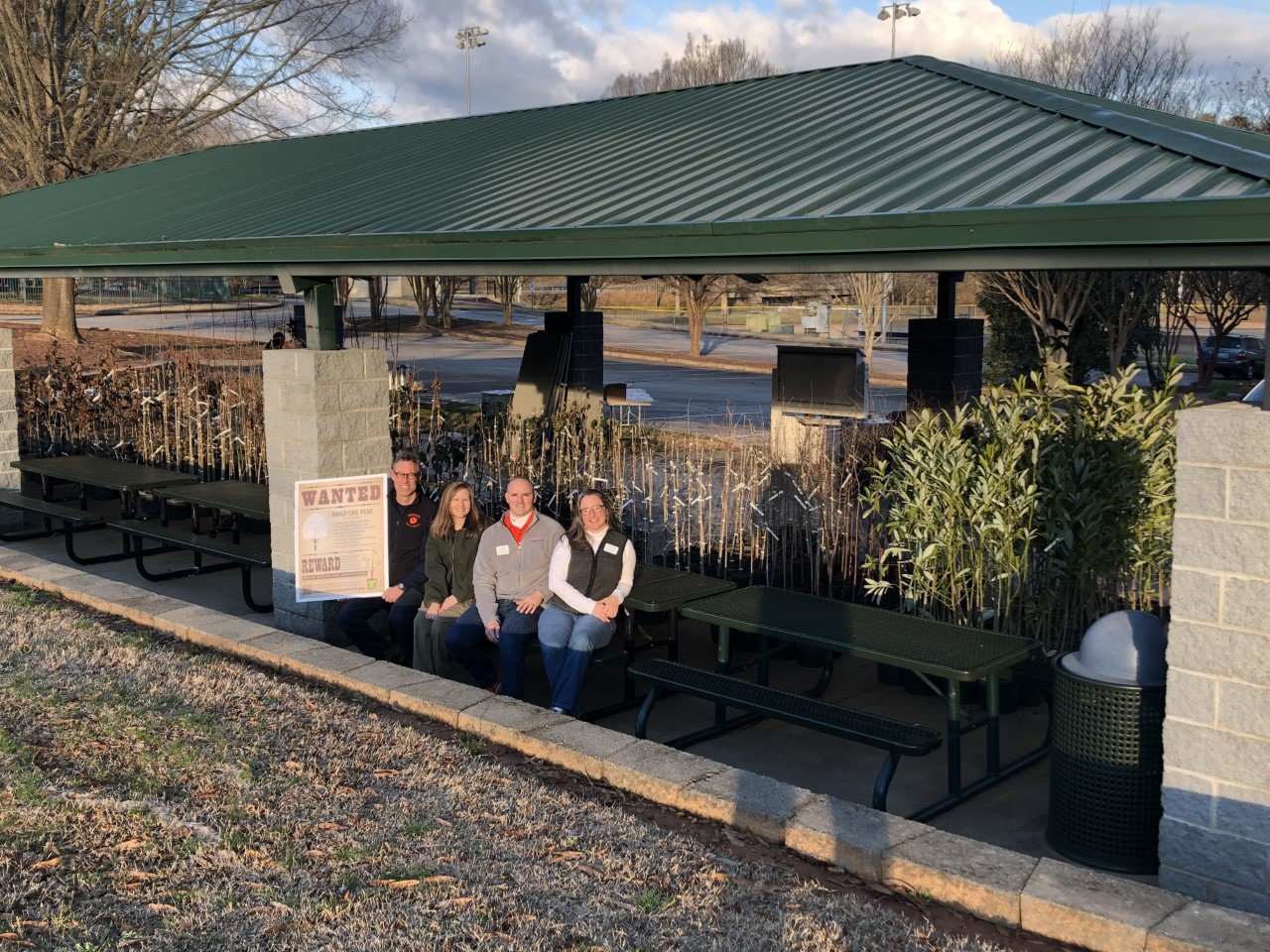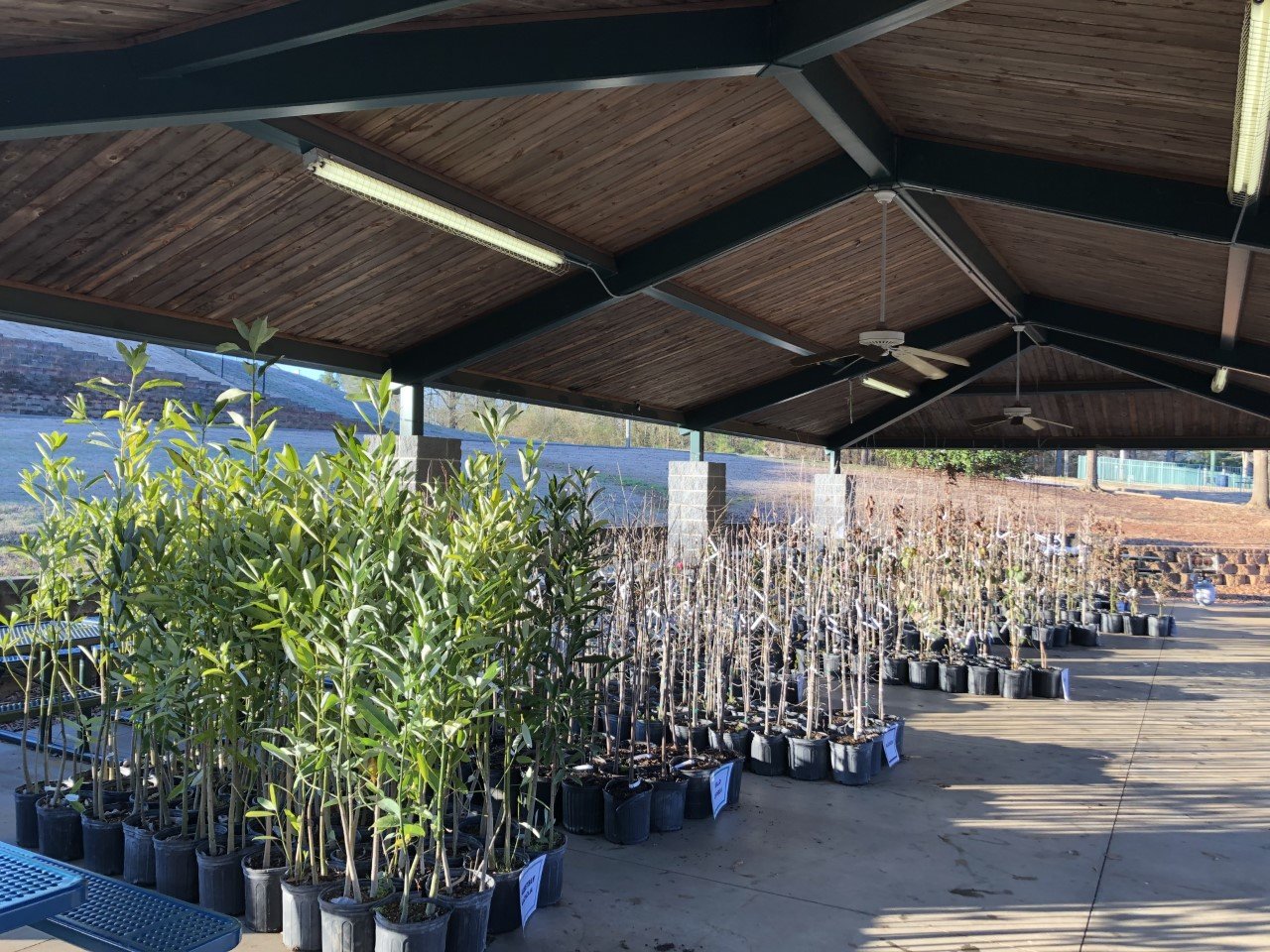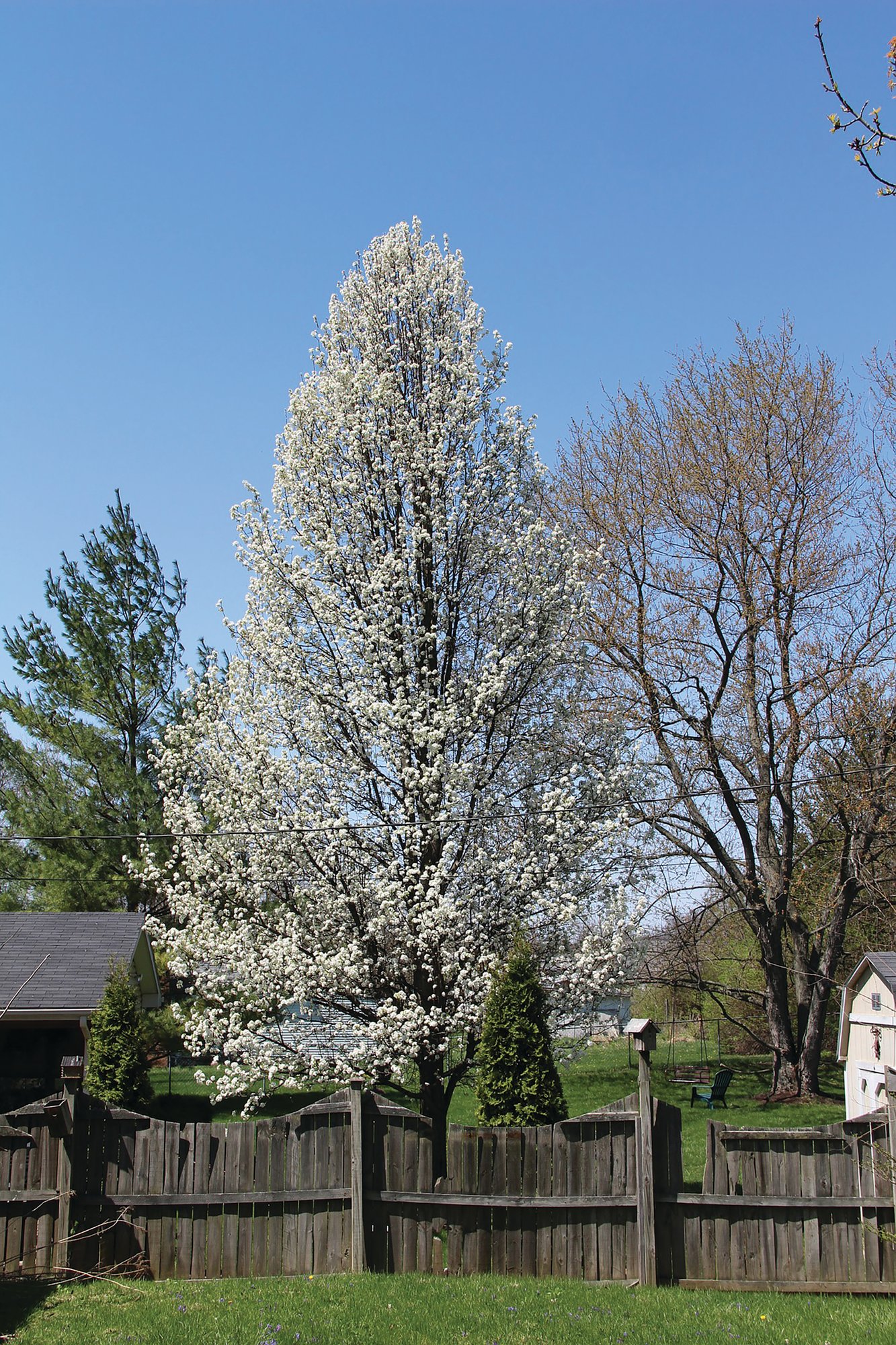Clemson Extension program replaces invasive species growing in Sumter with free native trees
shelbie@theitem.com
An invasive species is wanted by Clemson Extension.
The Bradford Pear, a medium-sized tree with rounded form, is invasive in natural or unmanaged areas across the state. One of these areas is Sumter.
Horticulture Extension Agent Chase Smoak, who covers Sumter, Clarendon and Lee counties, said these trees, a native to China and Vietnam, may seem like a beautiful yard ornament, but they are actually dangerous to the environment.
"We have a ton of Bradford Pears in Sumter that became a very, very popular tree," Smoak said. "Years ago, people thought it was a beautiful landscape plant to use, and they also thought it was sterile."
Over time, these trees showed their true colors beyond their white spring blooms. It created callery pear, one of the worst invasive plant species in the Southeast that destroys environmental diversity, according to Smoak. The trees are fast growing, prone to split with their weak structure, have an unpleasant odor and bring little life to the community.
"No animals like to live in these areas," Smoak said. "It injures livestock, damages equipment, pops tires they basically create these monocultures, where you see nothing but these plants growing. We're trying to stop that from happening here in Sumter."
Clemson Extension, in partnership with the City of Sumter, Duke Energy and the S.C. Forestry Commission, will sponsor a program at the end of February to decrease the number of Bradford Pears in Clemson and Sumter.
The Bradford Pear Bounty Program will give homeowners the opportunity to remove Bradford Pears from their residence before Feb. 27 and replace them with native South Carolina trees. Sumter property owners who take part can exchange up to five Bradford Pears for an equal number of free, healthy trees of their choosing. There are up to 19 trees available to choose from.
This will be the second year Clemson Extension provided this program. Clemson was the only city to participate last year, and Sumter was chosen as this year's participating city.
"In order to have an impact across the state in decreasing these Bradford Pears, you need to ship these programs around," Smoak said, thankful Sumter was chosen to participate as a second city this year.
"We knew we wanted to expand it," said Dave Coyle, assistant professor at the Department of Forestry and Environmental Conservation at Clemson. "Sumter seemed like the logical place."
He hopes the Sumter event will be a success so that they can continue partnering with other South Carolina communities for the bounty program.
"We want to promote the planting of native things and also bring awareness of the invasive species issue," Coyle said.
Free trees will be available for pickup from 9 a.m. to noon on Feb. 27 at Swan Lake-Iris Gardens Heath Pavilion, 150 Garden St.
Participants are asked to provide a photo of the Bradford Pear tree(s) torn down before picking up a replacement tree. Replacement trees will be distributed on a first-come, first-served basis while supplies last. If your preferred replacement tree is not available at time of distribution, you will be provided with a healthy alternative.
The participation criteria and preregistration can be found online at www.clemson.edu/extension/bradford-pear/.
The City of Sumter's policy on yard debris pickup for the downed trees can be found online at www.sumtersc.gov/publicservices/sanitation/debris.
Smoak wants to remind participants to wear safety gear when cutting down the Bradford Pear, as well as remember to treat the stump of the tree with herbicide to not have the roots shoot up new stems.
For more information, call (803) 848-8163 or email jsmoakj@clemson.edu.
More Articles to Read






